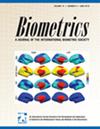A Bayesian latent-subgroup platform design for dose optimization.
IF 1.7
4区 数学
Q3 BIOLOGY
引用次数: 0
Abstract
The US Food and Drug Administration launched Project Optimus to reform the dose optimization and dose selection paradigm in oncology drug development, calling for the paradigm shift from finding the maximum tolerated dose to the identification of optimal biological dose (OBD). Motivated by a real-world drug development program, we propose a master-protocol-based platform trial design to simultaneously identify OBDs of a new drug, combined with standards of care or other novel agents, in multiple indications. We propose a Bayesian latent subgroup model to accommodate the treatment heterogeneity across indications, and employ Bayesian hierarchical models to borrow information within subgroups. At each interim analysis, we update the subgroup membership and dose-toxicity and -efficacy estimates, as well as the estimate of the utility for risk-benefit tradeoff, based on the observed data across treatment arms to inform the arm-specific decision of dose escalation and de-escalation and identify the OBD for each arm of a combination partner and an indication. The simulation study shows that the proposed design has desirable operating characteristics, providing a highly flexible and efficient way for dose optimization. The design has great potential to shorten the drug development timeline, save costs by reducing overlapping infrastructure, and speed up regulatory approval.用于剂量优化的贝叶斯潜在子组平台设计。
美国食品和药物管理局启动了 Optimus 项目,以改革肿瘤药物开发中的剂量优化和剂量选择范式,要求从寻找最大耐受剂量向确定最佳生物剂量 (OBD) 范式转变。受真实世界药物开发项目的启发,我们提出了一种基于主方案的平台试验设计,在多个适应症中同时确定新药的最佳生物剂量(OBD),并结合标准治疗或其他新型药物。我们提出了贝叶斯潜伏亚组模型来适应不同适应症的治疗异质性,并采用贝叶斯分层模型来借用亚组内的信息。在每次中期分析时,我们都会根据各治疗臂的观察数据更新亚组成员、剂量-毒性和-疗效估计值,以及风险-效益权衡的效用估计值,从而为特定治疗臂的剂量升级和降级决策提供信息,并确定联合用药伙伴和适应症的每个治疗臂的 OBD。模拟研究表明,拟议的设计具有理想的操作特性,为剂量优化提供了一种高度灵活、高效的方法。该设计在缩短药物开发时间、通过减少基础设施重叠节约成本以及加快监管审批方面具有巨大潜力。
本文章由计算机程序翻译,如有差异,请以英文原文为准。
求助全文
约1分钟内获得全文
求助全文
来源期刊

Biometrics
生物-生物学
CiteScore
2.70
自引率
5.30%
发文量
178
审稿时长
4-8 weeks
期刊介绍:
The International Biometric Society is an international society promoting the development and application of statistical and mathematical theory and methods in the biosciences, including agriculture, biomedical science and public health, ecology, environmental sciences, forestry, and allied disciplines. The Society welcomes as members statisticians, mathematicians, biological scientists, and others devoted to interdisciplinary efforts in advancing the collection and interpretation of information in the biosciences. The Society sponsors the biennial International Biometric Conference, held in sites throughout the world; through its National Groups and Regions, it also Society sponsors regional and local meetings.
 求助内容:
求助内容: 应助结果提醒方式:
应助结果提醒方式:


